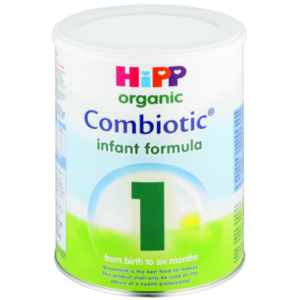As a parent, ensuring your baby receives the best nutrition is a top priority. Sometimes, this means making adjustments to their formula. There are various reasons why you might want to change your baby’s formula, and when the time comes, it’s essential to do it carefully to minimise any potential discomfort or digestive issues. In this blog post, we’ll explore why you might consider changing baby formula and provide valuable tips for a smooth transition.
***Disclosure -The links in this post may contain affiliate links and I may receive a small commission if you make a purchase after clicking on a link.***

Why You Would Want to Change Baby’s Formula
-
Digestive Issues
One common reason to consider changing your baby’s formula is digestive problems. If your baby experiences frequent gas, fussiness, colic, bloating, diaorrhea, or constipation, it could be a sign that the current formula doesn’t agree with their system. Different formulas have varying ingredients, and some might be gentler on your baby’s stomach.
-
Allergies Or Sensitivities
Babies can develop allergies or sensitivities to certain ingredients in their formula. Common allergens include cow’s milk protein or soy protein. If your baby shows signs of an allergic reaction, such as rashes, hives, or excessive fussiness, consult your paediatrician, who may recommend a hypoallergenic formula.
-
Changing Nutritional Needs
As your baby grows, their nutritional needs evolve. Sometimes, a formula that suited them well in the early months may not provide the necessary nutrients as they get older. It’s essential to monitor your baby’s growth and development and consult with your paediatrician to ensure they’re getting the right formula for their age.
-
Transitioning To Solid Foods
Around six months of age, babies start transitioning to solid foods. This shift in their diet might prompt a change in their formula. Your paediatrician can advise you on the best approach to gradually introduce solids and adjust their formula accordingly.
Tips for Transitioning to a New Formula
-
Consult Your Paediatrician
Before making any changes to your baby’s formula, it’s crucial to consult your paediatrician. They can assess your baby’s specific needs, recommend the right formula, and provide guidance on the transition process.
-
Gradual Transition
Sudden changes in formula can disrupt your baby’s digestive system. To minimise discomfort, gradually introduce the new formula while decreasing the old one. Start by mixing small amounts of the new formula with the old one and gradually increase the proportion of the new formula over several days or weeks.
-
Observe For Allergic Reactions
As you switch to a new formula, closely monitor your baby for any allergic reactions or digestive issues. If you notice any concerning symptoms, contact your paediatrician promptly.
-
Prepare Bottles Carefully
Follow the instructions on the formula packaging for mixing and preparing bottles. Proper preparation ensures your baby receives the right nutrients and minimises the risk of digestive upset.
-
Stay Consistent
Once you’ve successfully transitioned to a new formula, try to stick with it for a while. Switching back and forth between formulas can be confusing for your baby’s digestive system.
-
Be Patient
Remember that each baby is unique, and the transition process may vary from one child to another. Be patient and give your baby time to adjust to the new formula. It may take a few days to a couple of weeks for them to fully adapt.
Changing your baby’s formula can be a necessary step to ensure they receive the best nutrition and minimise discomfort. By understanding why you might need to switch formulas and following these tips for a smooth transition, you can help your baby thrive and grow healthy and happy. Always consult with your paediatrician for personalised guidance and recommendations tailored to your baby’s specific needs.
 Kaboutjie SA Mommy Blogs by Lynne Huysamen
Kaboutjie SA Mommy Blogs by Lynne Huysamen





